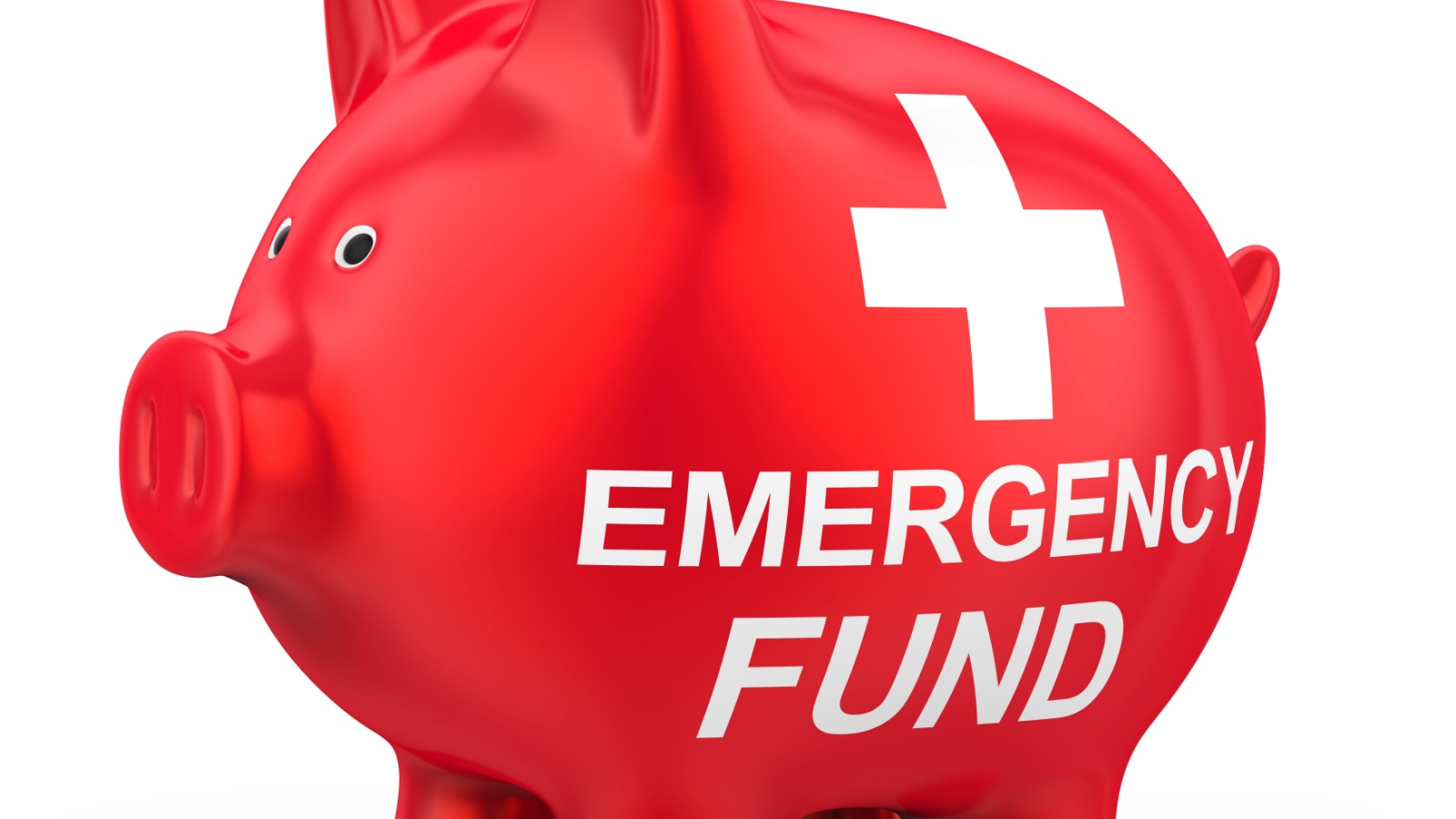Financial success is not always about earning the highest income. It is often measured by how effectively you manage and grow the money you have. Many Canadians may underestimate their progress, overlooking key indicators of strong financial health. These signs can range from spending habits and savings strategies to investment discipline and debt control. Here are 22 signs that show you are doing better financially than most Canadians.
You Consistently Spend Less Than You Earn

Living within your means is one of the strongest indicators of financial health. When your spending is consistently lower than your income, you are able to save, invest, and prepare for unexpected expenses. Canadians who maintain this habit avoid reliance on credit for day-to-day living, which reduces debt stress. It also allows you to build wealth steadily over time. Tracking your expenses, creating a realistic budget, and making thoughtful purchasing decisions help ensure you stay on the right path.
You Have an Emergency Fund Covering 3–6 Months of Expenses

An emergency fund protects you from financial setbacks caused by job loss, illness, or unexpected expenses. Financial advisors in Canada recommend setting aside enough to cover three to six months of living costs. This money should be easily accessible, such as in a high-interest savings account, so it is available when needed. Having this cushion allows you to avoid high-interest debt during tough times. It also provides peace of mind and financial flexibility. Regular contributions, even in small amounts, can help you reach this goal without straining your monthly budget.
You Carry Little to No High-Interest Debt

High-interest debt, such as credit card balances, can quickly erode your financial stability. If you have little or no debt of this type, you are already ahead of many Canadians who struggle with interest charges each month. Paying off balances in full or avoiding high-interest borrowing altogether frees up more of your income for savings and investments. This reduces financial stress and improves your credit score. If you must borrow, choosing lower-interest options like a line of credit is more manageable. Maintaining low or zero high-interest debt keeps your finances strong and allows your money to work for you.
You Invest Regularly for the Future

Investing consistently, even in small amounts, is a sign of strong financial planning. Canadians who contribute regularly to accounts such as RRSPs, TFSAs, or non-registered portfolios benefit from compound growth over time. This approach smooths out market fluctuations and builds wealth steadily. Automatic contributions from your bank account make it easier to stay on track. A diversified investment strategy reduces risk while keeping your goals in focus. Whether you are saving for retirement, a home, or education, steady investing ensures progress. The key is to start early, remain disciplined, and adjust your portfolio as your needs and market conditions change.
You Have Multiple Income Streams

Relying on a single source of income can be risky. Canadians with multiple income streams, such as a primary job plus freelance work, rental income, or investment returns, are better positioned to handle financial challenges. Diversifying your earnings provides stability and can accelerate your savings and investment goals. It also gives you more flexibility in your career choices. Building additional income sources may require extra effort at first, but over time, they can provide meaningful financial security. This approach not only protects you from job loss but also opens opportunities for faster wealth growth and greater lifestyle freedom.
Your Non-Mortgage Debt Payments Are Under 15 % of Your Income.

Keeping your non-mortgage debt payments below 15 % of your monthly income is a sign of healthy financial management. This includes car loans, credit card payments, personal loans, and lines of credit. Staying within this limit ensures you have enough income left for savings, investments, and everyday expenses without relying on additional borrowing. Lenders often view this as a positive indicator when assessing creditworthiness. Canadians who meet this standard are less vulnerable to interest rate increases and unexpected expenses. Monitoring your debt-to-income ratio regularly helps you stay within a safe range and maintain long-term financial stability.
You Check Your Finances Regularly

Regularly reviewing your finances is essential for staying on track with your goals. Canadians who monitor their bank accounts, credit card statements, and investment performance are better equipped to catch errors, avoid overdraft fees, and spot overspending early. This habit also helps you adjust your budget in response to income or expense changes. Whether you check weekly or monthly, consistency matters more than frequency. Using budgeting apps or online banking tools can make this process quick and efficient. Regular financial check-ins give you control over your money, reduce surprises, and keep you moving toward your short and long-term objectives.
You Understand That Money Is a Tool for Freedom

Recognizing that money is a means to create choices and independence shows a healthy financial mindset. Canadians who view money as a tool for achieving goals, rather than just for spending, make better decisions about saving, investing, and avoiding unnecessary debt. This perspective focuses on using financial resources to secure housing, fund education, or support retirement, rather than to impress others. It also encourages planning for emergencies and future needs. When money works for you, it reduces stress and increases your ability to live on your own terms, free from constant financial pressure or reliance on others for support.
You Understand That Time Is Money

The idea that time holds value encourages more productive financial choices. Canadians who understand this principle prioritize tasks that generate income or long-term benefits over activities that waste time and resources. This might mean outsourcing certain chores to focus on higher-earning work, learning skills that improve job prospects, or investing early to benefit from compounding growth. It also means avoiding delays in paying bills or making investments, as lost time can mean lost opportunities. Treating time as a valuable resource leads to smarter decisions, better productivity, and a stronger ability to meet both personal and professional financial goals.
You Can Treat Yourself Guilt-Free Within Budget

Being financially responsible does not mean avoiding all discretionary spending. If you can occasionally treat yourself without disrupting your budget or dipping into savings, you are in a strong position. Canadians who enjoy guilt-free spending have typically planned for it by including a small discretionary category in their budget. This ensures they can enjoy experiences, hobbies, or purchases without financial regret. The key is balance, where rewards do not undermine long-term goals. When treats are planned and affordable, they add to your quality of life without creating debt or jeopardizing the financial progress you have worked hard to achieve.
You Live Below Your Means, Not Chasing Status

Choosing a lifestyle you can comfortably afford rather than one aimed at impressing others is a sign of long-term financial stability. Canadians who live below their means save more, invest consistently, and avoid the stress of high debt. This choice often includes driving reliable vehicles, living in reasonably priced homes, and spending thoughtfully. It reflects financial confidence and independence, as you are less influenced by trends or peer pressure. By focusing on value rather than image, you protect your finances from instability and give yourself more freedom to direct resources toward meaningful goals, such as travel, education, or early retirement.
Your Net Worth Exceeds the Median for Your Age Group

If your total assets minus liabilities place you above the median net worth for your age group in Canada, you are financially ahead of many peers. This indicates effective saving, investing, and debt management over time. Net worth includes savings accounts, investments, home equity, and other assets, minus any outstanding debts. Being above the median means you have built a stronger financial cushion and are better prepared for future expenses or life changes. Regularly tracking your net worth can help you stay motivated, identify areas for improvement, and make adjustments to maintain or increase your lead over the average.
You’ve Paid Down More Mortgage Principal Than You Owe

When the amount of mortgage principal you have repaid exceeds your remaining balance, you have reached an important milestone in building home equity. This strengthens your net worth and reduces financial risk. Canadians in this position often have lower housing costs relative to income, freeing up money for other goals such as investments or renovations. It also provides flexibility if you need to sell or refinance your home. Achieving this level of repayment reflects consistent financial discipline and a focus on long-term stability. It also means you are on a faster track to owning your home outright, free from debt.
Your Credit Score Is in Excellent Shape

An excellent credit score, typically above 750 in Canada, reflects strong financial management. It means you pay bills on time, keep credit utilization low, and maintain a healthy mix of credit accounts. A high score gives you access to better interest rates on mortgages, loans, and credit cards, saving money over time. It also increases approval chances for rental applications or certain jobs. Canadians who monitor their credit reports regularly can spot errors and address issues quickly. Maintaining excellent credit is not just about borrowing power; it also demonstrates reliability and financial discipline that benefits all areas of money management.
You Maximize Retirement Account Contributions

Contributing the maximum allowable amount to registered accounts such as RRSPs and TFSAs helps you secure a stronger financial future. Canadians who prioritize these contributions take advantage of tax benefits, compound growth, and long-term investment returns. Consistent maximum contributions mean you are not only saving for retirement but also optimizing your tax strategy. This habit reflects a disciplined approach to wealth building and ensures you are making the most of available government incentives. Over time, maximizing these accounts can significantly increase your retirement security, allowing you to maintain your lifestyle and meet expenses without relying heavily on government pensions.
You Own a Home or Have Manageable Mortgage Terms

Homeownership or having a mortgage that fits comfortably within your budget is a sign of financial stability. Canadians who keep housing costs at or below 30 % of their income avoid the strain of being house poor. Manageable mortgage terms mean predictable payments and the ability to continue saving for other goals. Owning a home also builds equity, which contributes to net worth. Even if you are still paying off your mortgage, having favourable interest rates and terms ensures you are not overburdened. This balance allows you to enjoy the benefits of homeownership without sacrificing other financial priorities.
You Have Adequate Insurance Coverage for Health, Home, Auto, and Life

Having the right insurance coverage protects you from financial hardship caused by unexpected events. Canadians who maintain adequate health, home, auto, and life insurance can manage risks without depleting savings or taking on debt. This coverage ensures that major expenses from illness, accidents, or property damage are handled without long-term financial strain. Regularly reviewing policies keeps them up to date with current needs, such as changes in income, dependents, or property value. Comprehensive insurance is not an unnecessary expense; it is an essential safety net that supports financial stability and provides peace of mind for you and your family.
You Give to Charity or Support Others Financially

The ability to help others financially is a strong indicator of personal financial health. Canadians who can donate to charities, assist family members, or contribute to community causes without jeopardizing their own stability demonstrate both generosity and financial discipline. Giving back can also offer tax benefits, especially through registered charitable donations. Beyond the numbers, it reflects a level of security where you have resources to share. Financially stable individuals plan for their giving in the same way they budget for expenses, ensuring contributions are sustainable and meaningful. Supporting others is both a personal value and a financial milestone.
You Feel Financially Secure and Confident in Your Future

A sense of financial security comes from having enough savings, manageable debt, and a clear plan for the future. Canadians who feel confident in their financial position can handle emergencies, fund their goals, and retire comfortably. This confidence is built through consistent saving, smart investing, and careful spending. It also reflects a realistic understanding of income and expenses, as well as preparedness for unexpected changes. Feeling secure financially reduces stress and allows you to make decisions based on choice rather than necessity. It is a sign that your finances are in balance and moving in the right direction.
You Automate Your Savings and Investments

Automating savings and investment contributions ensures consistent progress toward your goals. Canadians who set up automatic transfers to high-interest savings accounts, RRSPs, TFSAs, or other investment vehicles remove the temptation to spend first. This method builds wealth steadily without requiring constant manual effort. Automation also helps you stay disciplined, even during months with higher expenses. It ensures you never miss a contribution deadline and allows your money to start growing immediately. Over time, this habit creates financial stability and accelerates progress toward major goals, such as homeownership, education funding, or retirement, while making saving a seamless part of your routine.
You Have Financial Literacy and Keep Improving It

Financial literacy means understanding how money works, including budgeting, investing, debt management, and taxes. Canadians with strong financial knowledge can make informed decisions that protect and grow their wealth. Continually improving this skill through books, courses, or financial news helps you adapt to changing markets, interest rates, and regulations. It also prevents costly mistakes and increases confidence in handling complex situations like mortgages or retirement planning. Financially literate individuals are better equipped to spot opportunities and avoid scams. This commitment to learning ensures that your financial strategies remain effective and relevant throughout different stages of your life.
You’re Planning or Securely Funding Your Retirement

Planning for retirement is a clear sign of long-term financial health. Canadians who actively contribute to RRSPs, TFSAs, pensions, or other investments are building a reliable income stream for the future. Securely funding retirement means calculating expected expenses, estimating government benefits, and ensuring your savings can cover the difference. It also involves adjusting contributions and investments as life circumstances change. Those who plan early benefit from compound growth and have more flexibility in deciding when to retire. A well-funded retirement plan provides peace of mind, allowing you to enjoy later years without financial stress or dependence on others.
21 Products Canadians Should Stockpile Before Tariffs Hit

If trade tensions escalate between Canada and the U.S., everyday essentials can suddenly disappear or skyrocket in price. Products like pantry basics and tech must-haves that depend on are deeply tied to cross-border supply chains and are likely to face various kinds of disruptions
21 Products Canadians Should Stockpile Before Tariffs Hit
